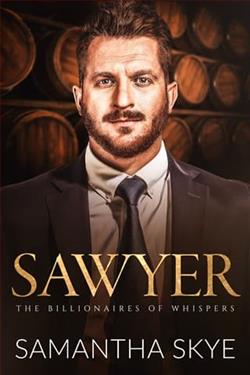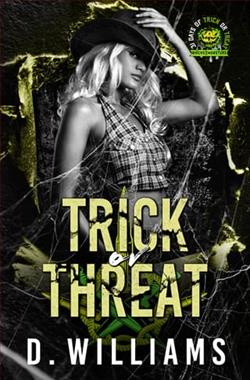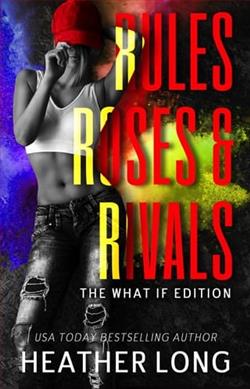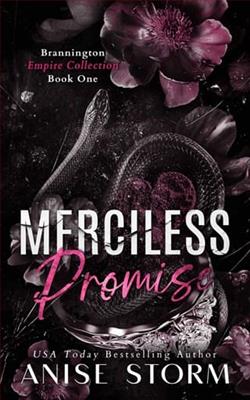Page 112 of The Killing Plains
Colly looked closely at the PET scan in her hand. Now that she knew what it was, she could clearly discern the distinct folds and valleys of the human brain, lit with gaudy splashes of red, yellow, green—and one very large patch of dark blue.
“What do the colors mean?”
“Warmer ones indicate greater blood flow, which means higher neural activity in that area. See that gigantic blue blob on the right side?” Niall leaned across the bar to point.
“Low blood flow there?”
“Almost none. That region of the frontal lobe’s associated with morality, empathy, and self-control.”
“A psychopath?”
“Basically, yes, though that’s a term cops and reporters use, not scientists.” He nodded towards the page in Colly’s hand. “That’s the brain of a seventeen-year-old who killed his grandparents over a jar of loose change. He’s in a state prison, but the majority of our study participants are at the juvenile correctional facility in Brownwood. I go out to meet with them once a month.”
“I’m glad that kid was tried as an adult,” Brenda said as she wiped down the table with a damp cloth. “I’d hate to think someone like that could be back on the streets soon.”
Colly handed the scan to Niall, who took it with a sheepish grin. “Sorry, I’ve been droning. I get carried away.” He laid the paper with the rest and opened a cupboard.
“It’s interesting. Jolene Hoyer mentioned you did a brain scan on Denny. Was that for this project?” Colly asked a little nervously.
“Yes and no.” Niall handed a stack of placemats and napkins to Brenda and took wine glasses from another cupboard. “Denny was really too young—the study’s cutoff is fifteen. But I told the Hoyers that the clinic would handle his therapy pro bono if they’d let me enroll him. I figured it’d hurt their pride less if they thought I was getting something out of the deal. I just wanted to help.” He filled the wine glasses and handed one to each of his guests.
“Would it be ethical to show me Denny’s PET scan?” Colly asked.
Niall hesitated, then shrugged. “If you think it might help solve his murder.” He rifled through the scans, then pushed one across the bar. Colly recognized the signature dark blue blotch in the frontal lobe.
“Denny was a psychopath?”
“He definitely lacked empathy and impulse control. But he was a thirteen-year-old boy. That’s kind of their thing. The brain changes so rapidly during puberty that it’s impossible to say how typical or atypical he was without scanning a lot more kids his age.”
“In Denny’s case, there were other worrying signs, though,” Brenda said. “Cruelty to animals, bed-wetting, arson—all typical traits of ASPD in kids.”
“ASPD?” Colly asked.
“Antisocial personality disorder. In layman’s terms, psychopathy. I was definitely concerned.”
Colly’s mind went to Satchel’s recent behavior. She felt suddenly queasy.
“Not everyone with ASPD’s a criminal,” Niall said, as if reading her thoughts. “Many—probably most—live fully integrated, productive lives. A grad-school buddy of mine scanned himself out of curiosity a few years back and found out he has a so-called psychopathic brain. TheSmithsoniandid an article on it. I still tease him.”
“But he’s not—?”
Niall looked up from slicing a baguette, and laughed. “He’s a little cut-throat on the rugby field, but that’s the worst of it.”
A kitchen timer rang, indicating that the coq au vin was ready, and the conversation turned to other things.
Colly was surprised at how much she enjoyed the dinner. The food was excellent, and Niall proved to be well-read and widely traveled. He conversed intelligently about a range of issues and showed a lively interest in her, as well, asking many questions about her life and career. The more they talked, the more Colly found herself wondering about him. Why would someone so bright and cosmopolitan bury himself in a dried-up backwater like Crescent Bluff?
After dinner, Niall suggested a stroll down to the pond before dessert. Outside, the air was cool, and the stars hung thick and bright. The moon was rising, and a glowing yellow nimbus hovered on the eastern rim of the hollow. From the direction of the pond came the melancholychuck-chuck-chuckof a leopard frog.
The path to the pond led past a small log cabin a few dozen yards from the house. “My fly-tying shed,” Niall explained. “It’s a hobby.”
Brenda laughed. “It’s anobsession. You should see it, Col. Feathers and beads and fur and more frou-frou than the dressing room of a Hollywood starlet. Open the door, Niall—give her a peek.”
Niall good-naturedly agreed, and they crossed the lawn to the shed. A motion-sensitive light beneath the eaves flickered on. The door was padlocked, and Niall felt along its upper casing for the key.
Inside, he switched on the lights. The interior of the shed was crowded with gear yet seemed neatly organized. Dozens of expensive-looking fly-rod cases lay across the open rafters above. Reels, waders, vests, nets, and baskets hung on one wall.On another, rows of shelves were stacked with plastic containers, each carefully labelled. In the corner, beside an enormous wheeled plastic case of the sort used to convey sporting equipment, stood a plywood workbench fitted with a vise and magnifying glass, both on hinged arms. A large pegboard on the wall above it held spools of thread and wire, bobbins, pliers, scissors, tweezers, and other tools of obscure purpose. Given the remoteness of the property, Colly had initially been surprised that Niall bothered to lock the shed. Now she understood.
There must be fifty grand worth of stuff in here,she thought.















